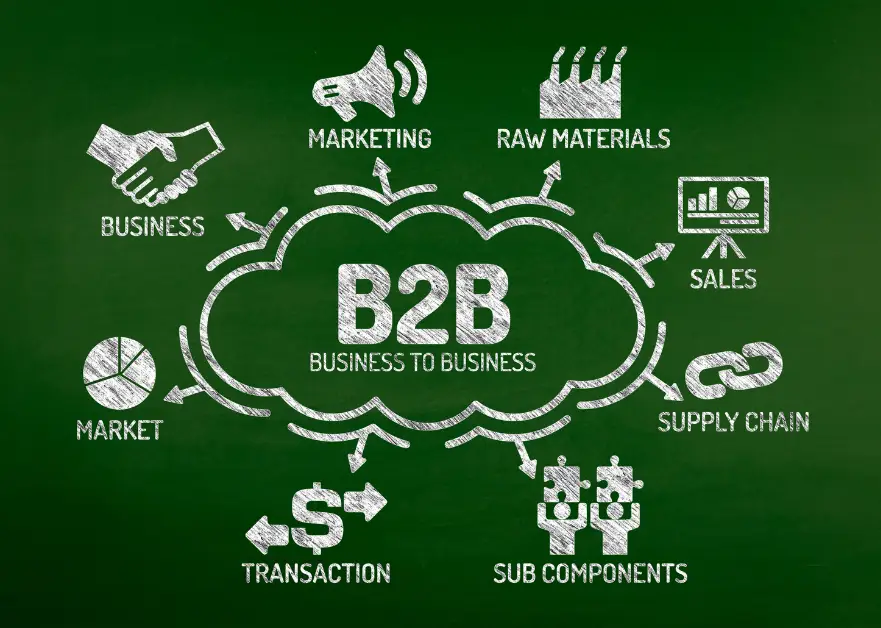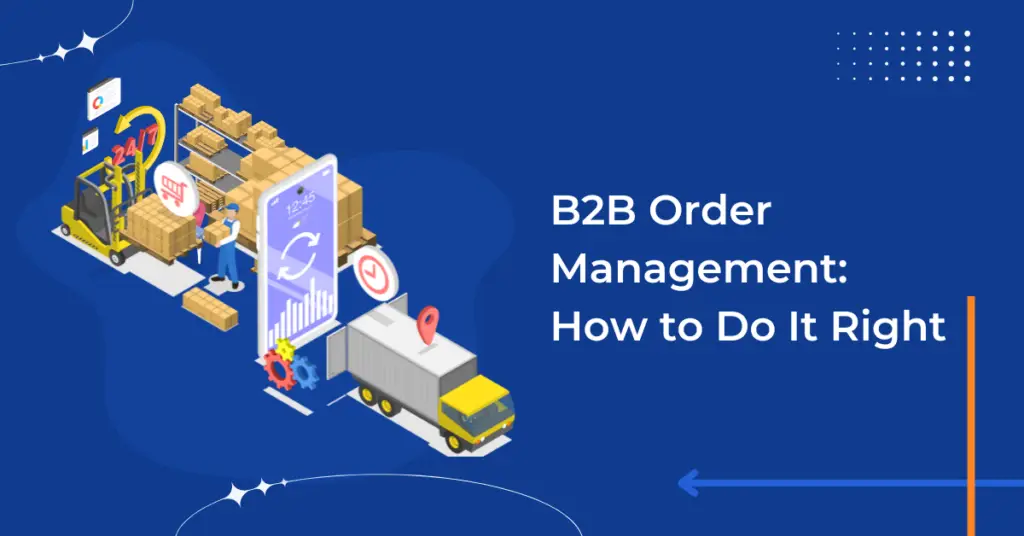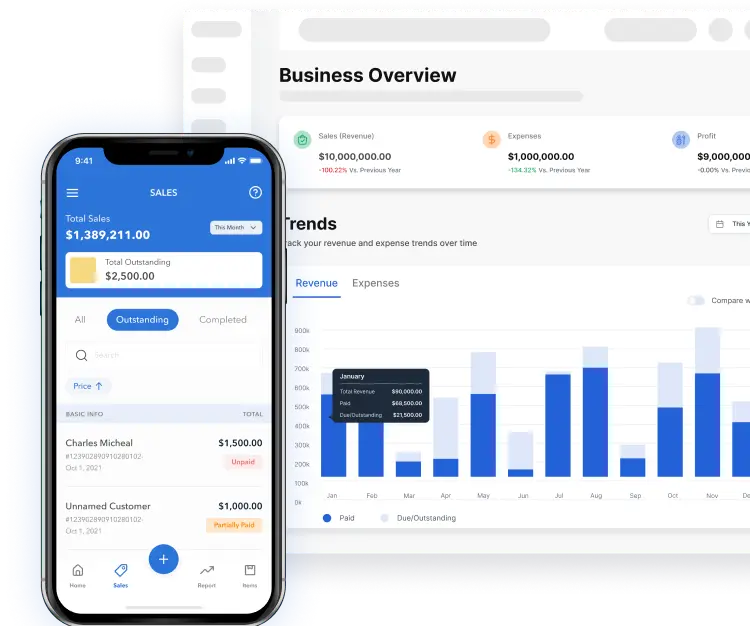Achieving success in B2B commerce depends on effective order management; from seamless order processing to maintaining optimal inventory levels, every aspect of order management plays a crucial role in driving business growth.
This article provides actionable tips for optimizing B2B order management empowering admins, managers, and business owners in the retail and wholesale industry to streamline business operations and achieve greater efficiency. In this post, we will cover:
- What is B2B Order Management?
- Why is B2B Order Management Important?
- What are Some Challenges Faced in B2B Order Management?
- 5 Best Practices for Effective B2B Order Management
- What are Some Tools for Effective B2B Order Management?
- Optimizing Your B2B Order Management with Vencru

What is B2B Order Management?
B2B order management encompasses the processes and systems involved in facilitating transactions between businesses. It involves managing the entire order lifecycle, from order placement to fulfillment, invoicing, and beyond. B2B order management covers areas like receiving and processing orders, managing inventory levels, picking, packing, and shipping products, generating invoices, handling returns and refunds, providing exceptional customer service, and tracking metrics.
Related Read: 10 Important Sales Channels for Your B2B Business
Why is B2B Order Management Important?
Efficient order management is the cornerstone of successful B2B transactions, influencing various aspects of operations, customer satisfaction, and financial performance. Here’s why efficient order management is indispensable for business owners in the B2B realm:
- Smooth Operations: Streamlined processes minimize delays and errors. Thus, optimizing productivity throughout the transaction lifecycle.
- Timely Order Fulfillment: Prompt order processing ensures on-time delivery, which enhances customer satisfaction and fostering loyalty.
- Accurate Inventory Management: Real-time visibility into inventory levels prevents stockouts and excess, minimizing storage costs and meeting demand effectively.
- Improved Communication: Efficient communication channels enable timely updates and issue resolution, strengthening relationships and trust.
- Cost Optimization: Minimized errors and delays reduce operational costs, while accurate inventory management maximizes resource utilization.
- Informed Decision-Making: Data-driven insights inform strategic decisions, optimizing processes and identifying growth opportunities.
What are Some Challenges Faced in B2B Order Management?

Challenges in B2B order management are diverse and significant, posing obstacles to smooth operations and customer satisfaction:
- Complexity: B2B transactions often involve multiple stakeholders, intricate supply chains, and diverse product catalogs, increasing the complexity of order management processes.
- Variability: Orders in the B2B realm can vary significantly in terms of size, frequency, and customization requirements. This poses challenges in standardizing processes and maintaining efficiency.
- Integration: Integrating order management systems with other business systems, such as ERP and CRM platforms, can be challenging, leading to data silos and inefficiencies in information sharing.
- Accuracy: Ensuring the accuracy of order data, including pricing, quantities, and delivery schedules, is crucial in B2B transactions. However, manual data entry and processing errors can lead to delays, disputes, and customer dissatisfaction.
- Communication: Effective communication between suppliers, customers, and internal teams is essential for successful order management. However, coordinating communication channels and ensuring timely updates can be challenging, particularly in global supply chains with diverse stakeholders.
- Scalability: As businesses grow and expand, their order management needs evolve. Scalability challenges may arise in adapting existing processes and systems to accommodate increased order volumes and complexity.
5 Best Practices for Effective B2B Order Management
1. Streamline Order Processing Workflows:

Simplify and automate order processing workflows to reduce manual efforts and processing time. By implementing streamlined processes, businesses can minimize errors and improve efficiency. This can be achieved by deploying order management software that automates repetitive tasks and standardizes order-processing procedures.
2. Leverage Technology for Automation and Integration:
Invest in B2B order management software that seamlessly integrates with other business systems, such as ERP and CRM. This integration ensures data consistency and streamlines operations by eliminating manual data entry and facilitating information sharing across departments. By leveraging technology, businesses can optimize workflows, improve collaboration, and enhance overall efficiency.
3. Implement Robust Inventory Management Strategies:

Adopt best practices in inventory management, including real-time tracking, demand forecasting, and optimized replenishment. By maintaining optimal stock levels and preventing stockouts, businesses can meet customer demand effectively and minimize excess inventory costs. Implementing inventory management software allows businesses to automate inventory tracking, generate demand forecasts, and streamline replenishment processes, ensuring efficient inventory management.
Related Read: Wholesale Inventory Management Software
4. Enhance Communication with Suppliers and Customers:
Foster transparent and efficient communication channels with suppliers and customers to ensure timely deliveries and resolve issues promptly. By establishing clear communication protocols and utilizing communication tools such as email, phone, and messaging platforms, businesses can improve collaboration and build strong relationships with their partners. Effective communication enhances customer satisfaction, reduces order lead times, and minimizes the risk of disputes.
5. Utilize Data Analytics for Informed Decision-Making:

Harness the power of data analytics to gain insights into order trends, inventory performance, and customer behavior. By analyzing data from order management systems, businesses can make informed decisions and develop strategic plans to optimize operations and drive growth. Implementing data analytics tools allows businesses to identify opportunities for process improvement, optimize resource allocation, and capitalize on market trends, enabling them to stay competitive in the B2B marketplace.
What are Some Tools for Effective B2B Order Management?
Here are some tools commonly used for B2B order management:
- Order Management Systems (OMS): OMS software facilitates the entire order lifecycle, from order placement to fulfillment and invoicing. It centralizes order processing, streamlines workflows, and provides real-time visibility into order status.
- Enterprise Resource Planning (ERP) Systems: ERP systems integrate various business functions, including order management, inventory management, finance, and human resources, into a single platform. They offer comprehensive order management capabilities and facilitate data sharing across departments.
- Customer Relationship Management (CRM) Systems: CRM systems help businesses manage customer interactions and relationships. They often include features for order tracking, customer communication, and sales forecasting, making them valuable tools for B2B order management.
- Inventory Management Software: Dedicated inventory management software allows businesses to track inventory levels, manage stock across multiple locations, and optimize inventory replenishment. It ensures that businesses have the right products available at the right time to fulfill orders efficiently.
- Supply Chain Management (SCM) Software: SCM software helps businesses optimize their supply chain processes, including order management, procurement, and logistics. It enables businesses to collaborate with suppliers, track shipments, and manage inventory levels effectively.
- Electronic Data Interchange (EDI) Systems: EDI systems facilitate the electronic exchange of business documents, such as purchase orders and invoices, between trading partners. They automate order processing and improve data accuracy, reducing manual efforts and errors in B2B transactions.
- E-commerce Platforms: Many businesses use e-commerce platforms to facilitate online sales and order management. These platforms often include features for order processing, inventory management, and customer communication, making them valuable tools for B2B e-commerce operations.
- Third-Party Logistics (3PL) Services: Some businesses opt to outsource order fulfillment and logistics to third-party logistics providers. These providers offer expertise in warehousing, shipping, and distribution, helping businesses streamline their order management processes and expand their reach.
Optimize Your B2B Order Management with Vencru!

Running your business with a B2B order management software like Vencru can make a difference in driving success for your retail or wholesale business. With Vencru enjoy:
- Efficient Inventory Management: Vencru simplifies inventory tracking, preventing stockouts and overselling with automatic alerts and intuitive management tools. Get real-time insights into your inventory
- Streamlined Order Management: Centralize order processing from creation to fulfillment, ensuring accuracy and efficiency for both in-store and online sales. Create invoices and process payment with Vencru payment systems
- Effective Sales and Client Management: Manage client relationships and track purchase history effortlessly, fostering strong connections and personalized interactions. Know who owes you and how much. Recover outstanding money
- Seamless E-commerce Integration: Sync inventory, manage orders, and track sales across online platforms with Vencru’s seamless e-commerce integration.
- Robust Accounting Features: Simplify finances with Vencru’s comprehensive accounting tools, and access double-entry accounting reports like income statements, cash flow statements, and many more providing real-time insights and simplifying your financial management process.
- Enhanced Purchasing and Supplier Management: Streamline purchasing from quote requests to deliveries, optimize supplier relationships, and ensure a steady supply chain with Vencru’s supplier management tools.
Take action today to optimize your order management processes and unlock new growth opportunities- Book a demo or sign up for a free trial today!
Related Content






